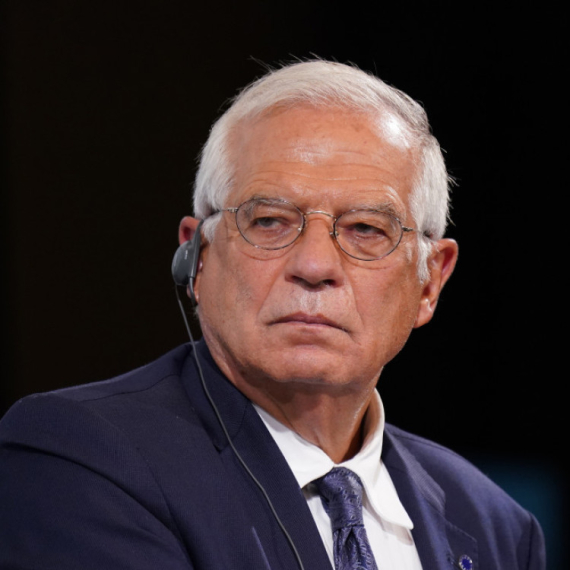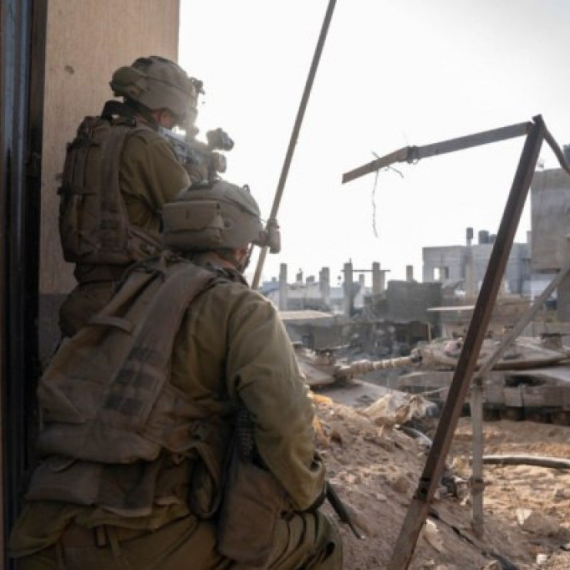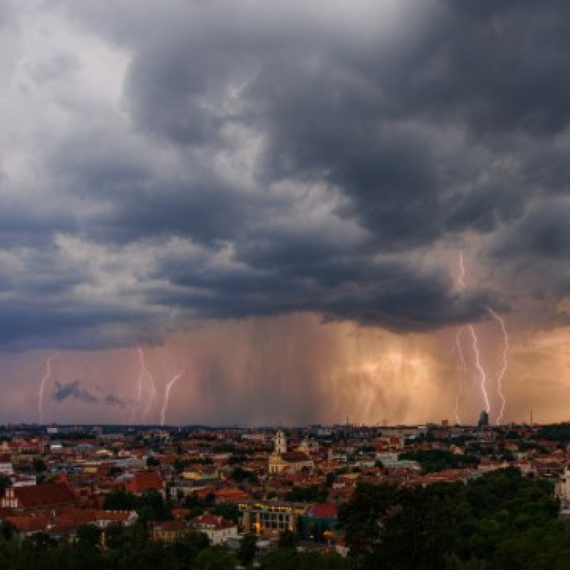Britain, France, U.S. plan Libya response
With two U.S. warships already in the Suez Canal, Washington has the military capability to respond quickly in Libya should it need to.
Saturday, 05.03.2011.
15:38

With two U.S. warships already in the Suez Canal, Washington has the military capability to respond quickly in Libya should it need to. Talks continue regarding the right international response to the situation, as fighting rages on between rebels and pro-Gaddafi forces. Britain, France, U.S. plan Libya response Britain and France also have troops and equipment in the region. Much of this is at NATO bases, though NATO itself has said will not be using military force against Libya. The US is still considering a no-fly zone. U.S. President Obama spoke frankly about the Libyan leader’s position for the first time: “The violence must stop. Muammar Gaddafi has lost legitimacy to lead and he must leave. What I want to make sure of, is that the U.S. has full capacity to act, potentially rapidly, if the situation deteriorated in such a way that you had a humanitarian crisis.” Both the British and French foreign ministers echoed President Obama’s need for readiness and planning when they met in Paris on Thursday. However, neither endorsed military intervention. British Foreign Minister William Hague said: “We’re also agreed that the international community, including the U.S., and our other partners should continue to plan for different contingencies, including a no-fly zone, to ensure that we can respond swiftly and resolutely to events in Libya.” His French counterpart, Alain Juppe, stressed that although France was considering options, NATO would not be acting militarily: “France does not think that, in the current context, military intervention by NATO powers would be well-received on the southern shores of the Mediterranean. It would be counterproductive. That said, given the actions that have been carried out by Colonel Gaddafi, we must put ourselves in a position to act. That’s why we’ve given our permission to the planning of an exclusion zone over Libya.”
Britain, France, U.S. plan Libya response
Britain and France also have troops and equipment in the region. Much of this is at NATO bases, though NATO itself has said will not be using military force against Libya.The US is still considering a no-fly zone. U.S. President Obama spoke frankly about the Libyan leader’s position for the first time: “The violence must stop. Muammar Gaddafi has lost legitimacy to lead and he must leave. What I want to make sure of, is that the U.S. has full capacity to act, potentially rapidly, if the situation deteriorated in such a way that you had a humanitarian crisis.”
Both the British and French foreign ministers echoed President Obama’s need for readiness and planning when they met in Paris on Thursday. However, neither endorsed military intervention.
British Foreign Minister William Hague said: “We’re also agreed that the international community, including the U.S., and our other partners should continue to plan for different contingencies, including a no-fly zone, to ensure that we can respond swiftly and resolutely to events in Libya.”
His French counterpart, Alain Juppe, stressed that although France was considering options, NATO would not be acting militarily: “France does not think that, in the current context, military intervention by NATO powers would be well-received on the southern shores of the Mediterranean. It would be counterproductive. That said, given the actions that have been carried out by Colonel Gaddafi, we must put ourselves in a position to act. That’s why we’ve given our permission to the planning of an exclusion zone over Libya.”




































Komentari 4
Pogledaj komentare